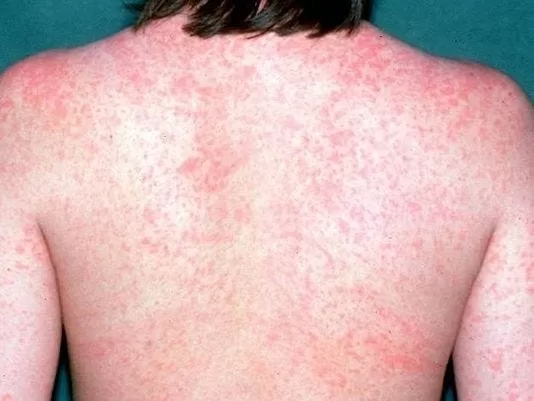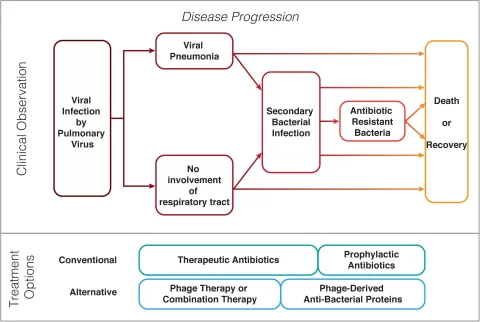The recent measles outbreak in Indiana has raised significant public health concerns, particularly as the Indiana Department of Health confirmed five additional cases involving unvaccinated individuals in less than two days. As Indiana measles cases continue to climb, health officials stress the importance of measles vaccination to control this highly infectious virus. Symptoms of measles, which include fever, cough, and a telltale rash, can appear up to 21 days after exposure, making early detection and prevention essential in mitigating the spread. Public health measures are in place to ensure that individuals with known exposures are contacted, helping to prevent measles spread within communities. As experts warn that one infected person can transmit the virus to many others, staying informed and ensuring proper vaccination is crucial to safeguarding the health of all Hoosiers.
In recent weeks, a troubling resurgence of the measles virus has been reported in the state of Indiana, sparking concern among health officials and the public alike. The emergence of these cases, particularly among unvaccinated minors, highlights the critical need for awareness surrounding measles symptoms and vaccination efforts. While the Indiana health department works diligently to trace contacts and minimize risk, the urgency of preventing further outbreaks cannot be overstated. Measles, often characterized by its rapid contagion, underscores the importance of community immunity and proactive health measures in safeguarding vulnerable populations. As families assess their vaccination status, it is imperative to consult healthcare providers to ensure protection against this preventable disease.
Understanding the Recent Measles Outbreak in Indiana
In recent weeks, the Indiana Department of Health has reported a series of new measles cases, including five additional infections tied to the state’s first laboratory-confirmed case. This situation underscores the contagious nature of measles, which can spread rapidly if vaccination rates are low. Health experts define an outbreak as the presence of just one confirmed case due to the virus’s high transmission rates. Indiana is now facing a concentrated effort to manage this outbreak as officials seek to identify and notify anyone who may have had exposure to affected individuals.
The recent rise in Indiana measles cases has prompted public health officials to heighten awareness of the illness. Measles is not just a childhood disease but can affect anyone who is unvaccinated. The interconnectedness of the reported cases exemplifies how quickly the virus can spread within communities, emphasizing the importance of comprehensive vaccination strategies. By informing the public about the risks and symptoms of measles, authorities are taking proactive measures to mitigate further infections.
The Importance of Measles Vaccination
Vaccination remains the most effective method for preventing measles and safeguarding public health. The measles, mumps, and rubella (MMR) vaccine offers robust protection against these diseases, with a single dose providing a 93% success rate and two doses achieving a remarkable 97%. In Indiana, the state health department has been advising parents to ensure their children are vaccinated, particularly as children receive their first dose at 12-15 months and a second dose before entering kindergarten.
Furthermore, it’s crucial that community members understand the role of herd immunity in protecting those unable to be vaccinated, such as infants and immunocompromised individuals. To achieve herd immunity, at least 95% of the population must be vaccinated against measles. Health officials are urging those who might have hesitations about getting vaccinated to engage in discussions with their healthcare providers, ensuring that everyone is informed about the benefits and safety of the measles vaccine.
Identifying Measles Symptoms Early
Recognizing the early symptoms of measles is vital for controlling outbreaks like the one currently affecting Indiana. Symptoms such as high fever, cough, runny nose, and the recognizable rash that begins at the hairline and extends across the body can develop 7 to 14 days after exposure to the virus. Being aware of these signs can lead to quicker isolation of infected individuals, thereby preventing further transmission within the community.
Individuals who suspect they have measles or have been in contact with someone diagnosed should seek medical advice promptly. Health officials recommend that such individuals stay home and contact their healthcare provider before visiting a facility. This practice reduces the risk of exposing others to the virus, especially in hospitals or clinics where vulnerable populations may be present. Early detection and reporting are key factors in controlling measles outbreaks.
Collaborative Efforts in Public Health to Contain Measles
The cooperation among state and local health officials is crucial in managing the ongoing measles outbreak in Indiana. By working together, they can effectively trace the contacts of infected individuals and educate the public on preventive measures. These collaborative efforts aim to minimize the potential for additional cases while ensuring that communities remain informed about the current health situation.
Moreover, public health campaigns are vital for increasing awareness about preventing the spread of measles. Through educational initiatives, officials are addressing misinformation regarding the safety and efficacy of vaccines. By emphasizing that the risk to the general public remains low when vaccination rates are high, health authorities are encouraging greater compliance and understanding within the community.
The Risks of Measles Complications
Measles is not just a benign childhood illness; it can lead to severe complications, especially in young children, pregnant women, and those with weakened immune systems. Health experts have warned that the risk of hospitalization is notably higher for these populations, with some experiencing life-threatening conditions such as pneumonia or brain swelling. In fact, nationwide, several children have faced severe clinical outcomes, leading to hospitalization or worse in the recent outbreak.
The seriousness of these complications illustrates the importance of vaccination as a form of preventative care. Health authorities emphasize that there is currently no cure for measles; thus, the emphasis remains on prevention through vaccination. Understanding the potential risks involved with measles can motivate parents and guardians to ensure their children are vaccinated, fostering a healthier environment for everyone.
Addressing Concerns about Vaccination
Despite the clear benefits of vaccination, some individuals remain hesitant or oppose the measles vaccine due to various misconceptions. It is crucial for health providers to engage in open discussions with patients to address these concerns properly. By providing accurate information about the vaccine’s safety and effectiveness, healthcare professionals can alleviate doubts and encourage families to partake in vaccination programs.
Moreover, education plays a vital role in combating vaccine hesitancy. Public health campaigns can help demystify vaccination processes, outline the risks of measles, and illustrate the benefits of community immunity. Engaging communities through workshops, informational brochures, and online resources can significantly contribute to improving vaccination uptake and protecting against outbreaks.
Protecting Special Populations from Measles
Certain groups are at a heightened risk for severe measles illness, including infants who are too young to be vaccinated, pregnant women, and those with compromised immune systems. These populations are particularly vulnerable because an unvaccinated individual can lead to serious health crises. Health officials emphasize the importance of ensuring these vulnerable groups are protected through herd immunity and public health initiatives.
Community awareness and involvement play important roles in protecting these special populations. Individuals who are healthy and eligible to be vaccinated must take the responsibility to immunize themselves to create a safer environment. By doing so, they effectively contribute to reducing the transmission of measles and safeguarding those who cannot be vaccinated, thereby fostering a wellness-centered community.
The Economic Impact of Measles Outbreaks
Measles outbreaks can strain public health resources and impact local economies. The cost of treating infected individuals, conducting extensive contact tracing, and managing public health campaigns can overwhelm healthcare systems, especially in smaller communities. The economic implications of an outbreak extend beyond immediate healthcare costs, potentially affecting local businesses and broader community activities.
Additionally, public perception may shift in response to outbreaks, with individuals opting to avoid affected areas, leading to further economic challenges. It’s vital for communities to recognize the interconnectedness of health and economic stability, reinforcing the need for robust vaccination programs to prevent such outbreaks from occurring in the first place. By investing in public health, communities not only protect their populations but also their economic environments.
The Role of Epidemiology in Tracking Measles Cases
Epidemiologists play a crucial role in containing measles outbreaks by tracking and analyzing the spread of the virus. The comprehensive data they gather helps public health officials identify patterns of infection, assess risk factors, and develop strategies to mitigate the spread of measles. The recent outbreak in Indiana has highlighted the importance of these professionals in monitoring not just local cases but also inter-state connections, ensuring that potential outbreaks outside the state are managed accordingly.
Through their efforts, epidemiologists contribute significantly to public health preparedness. As they study infection patterns, they also provide essential information for vaccine campaigns and policy formulation. By understanding how measles spreads and the effectiveness of vaccination strategies, public health officials can make informed decisions that protect community health and foster a collaborative response to health emergencies.
Frequently Asked Questions
What are the latest Indiana measles cases reported?
The Indiana Department of Health recently confirmed five additional Indiana measles cases, bringing the total to six. This outbreak includes unvaccinated minors, raising concerns among public health officials.
What are common measles symptoms to watch for during the outbreak in Indiana?
Common measles symptoms include fever, cough, white spots inside the mouth, and a rash that starts at the hairline and spreads across the body. If you experience these symptoms, contact your doctor immediately.
How can I prevent the spread of measles during the outbreak in Indiana?
To prevent the spread of measles in Indiana, ensure that you and your family are up-to-date with measles vaccinations. If you or your children have symptoms, stay home and avoid contact with others.
What is the vaccination status of individuals affected by the Indiana measles outbreak?
In the recent Indiana measles outbreak, three affected minors were unvaccinated, while the vaccination status of two adults remains unclear. Public health officials stress the importance of measles vaccination for preventing outbreaks.
What should I do if I think I’ve been exposed to measles in Indiana?
If you believe you have been exposed to measles in Indiana, monitor for symptoms, contact your healthcare provider for advice, and ensure your vaccinations are current.
Why is the measles vaccine important amid the Indiana measles outbreak?
The measles vaccine is crucial during the Indiana measles outbreak as it provides 93% protection with one dose and 97% with two doses, reducing the risk of severe illness and complications.
What are the risks associated with the current measles outbreak in Indiana?
While public health officials state that the risk to the general public from the Indiana measles outbreak is low, it is not zero, especially for vulnerable populations such as young children and those with compromised immune systems.
What is herd immunity and how does it relate to the Indiana measles outbreak?
Herd immunity is achieved when 95% of the population is vaccinated against measles, protecting those who cannot be vaccinated. This is crucial to controlling the spread of measles during the Indiana outbreak.
What complications can arise from measles, according to Indiana health experts?
Experts warn that measles can lead to serious complications such as pneumonia and brain swelling. The Indiana measles outbreak has highlighted these risks, especially for young children and unvaccinated individuals.
What is the recommendation for individuals born before 1957 regarding measles vaccination in Indiana?
Individuals born before 1957 are generally considered immune due to prior exposure to measles. However, those born between 1957-1968 may want to consult their healthcare provider about receiving a booster shot.
| Key Point | Details |
|---|---|
| Cases Confirmed | Five additional measles cases confirmed in Indiana. |
| Case Origins | First confirmed case involved an unvaccinated minor from Allen County. |
| Contagion Risk | Measles is highly contagious; one case can lead to an outbreak. |
| Current Cases | Total of six interconnected cases reported. |
| Investigation Status | Health officials are investigating and contacting individuals exposed. |
| Symptoms and Precautions | Symptoms include fever, cough, white spots, and rash. Self-isolation is advised. |
| Vaccine Efficacy | Single dose vaccine provides 93% protection; two doses give 97%. |
| Vaccine Recommendations | Consult healthcare providers to ensure vaccinations are current. |
| Herd Immunity | 95% vaccination rate needed to achieve herd immunity. |
Summary
The recent Measles outbreak in Indiana has raised public health concerns as six cases have been confirmed, initially starting with an unvaccinated minor. Due to the highly infectious nature of the virus, it is crucial for the community to stay informed about symptoms and the importance of vaccination. Health authorities urge individuals to consult their healthcare providers to ensure vaccinations are up to date, which is vital for preventing further outbreaks. With proper preventive measures and effective communication, the spread of measles can be curtailed.
The content provided on this blog (e.g., symptom descriptions, health tips, or general advice) is for informational purposes only and is not a substitute for professional medical advice, diagnosis, or treatment. Always seek the guidance of your physician or other qualified healthcare provider with any questions you may have regarding a medical condition. Never disregard professional medical advice or delay seeking it because of something you have read on this website. If you believe you may have a medical emergency, call your doctor or emergency services immediately. Reliance on any information provided by this blog is solely at your own risk.








